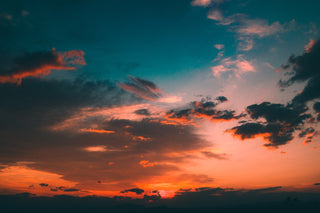Recovery From Addiction Is A Subject Itself...
There’s a lot of aspects of mental health that we have to take into consideration to effectively see our efforts flourish so our lives can bloom in a way that we either once lost or have yet to experience. But we all have our own unique set of methods that helps us maintain a competent standing with our relationship with ourselves, however that may transpire.
I find that our relationship with ourselves to some extent can be reflective of the handling of our respective mental maintenance. Over a period of time, patterns of behavior, whether it is intentional or unintentional, have the potential of creating a foundation for our mental health.
As a recovering porn addict, it came to my surprise that my recovery from my addiction and my relationship with said addiction were integral aspects of my mental health.
I found a recovery program known as ‘Refuge Recovery,’ a fellowship with a Buddhist inspired approach. I realized that there are several elements to the program that drew parallels with aspects of cultivating a robust foundation for one’s own mental health. These include but are not limited to developing community, your relationship with your livelihood, wisely putting your energy to actions that are nourishing for oneself, meditation, providing service to others, being wise and mindful with our intentions, wise and mindful with our speech, wise and mindful with our actions, etc.
A lot of this sounds like stuff I’d hear from seeing a therapist, or is at least very similar to it to some varying degree. Although there are similarities, I would not say that this can be seen as a complete replacement for a method like that, but can still be of value to some. There’s definitely value I gained from it, especially with the discoveries that I made. A startling discovery I made was that my foundation for my mental health was not as strong as I thought it was because once I started slipping towards returning to porn consumption, things just fell apart. I would isolate myself and binge watch for hours, for days; as for when it was at night, I’d just deprive myself of so much sleep, just to name a few things. The discipline I created had cracks that were exposed. With that being said, I then learned that what I was doing in the past was just abstaining.
I was never doing anything to ensure my own personal recovery. I wasn’t truly doing the work that made those attempts successful.
Being in a recovery program helped me make the realization that there were emotional and psychological things linked to my addiction that I never took into consideration, let alone took the time to acknowledge and address. It was a deeply reflective, humbling, retrospective experience to go through. It was a very sobering process, no pun intended. Shining a light on those things gave me more clarity, gave me more freedom. More power, power that I lost. Power that I lost, that I never knew that I relinquished to my addiction. Power my addiction had over me until I was able to peel back the layers.
Once I did, what was once this towering boulder of unresolved pain and suffering shrunk in size to a ball so small, it doesn’t get in my way, it doesn’t have much of a presence, it’s not looming, not at this point in time for what’s been over a year.
I feel like I can open myself up to feel even more than I ever could have before.
With the guided meditations, I had no idea how much compassion I had inside to give to myself and should have given to myself. How much love and forgiveness I had to ask of myself and to give to myself. So much that I’ve been moved to tears, multiple times. Those are breakthroughs, those are strides being taken within the relationship I have with myself. Never would I imagine having such an experience, but I suppose experiencing it from a guided meditation from a Buddhist inspired recovery program is par for the course.
My meditation practice has without a doubt benefitted from my involvement with the program. Long before even knowing about the program, I knew that I wanted meditation to be a part of my life. It is something that has helped me through key periods in my life, but there would be stretches of time where I would be in and then out of it. I’ve done them enough times to notice the difference in how I received information and responded to things but not enough times where it became ingrained into my day to day doings. Lo and behold, that is essentially what happened to me.
A program that helps me with my addiction by recommending me to meditate often definitely attributed to me developing a more consistent meditation practice. As much value as I gained from silent meditations, I felt I’ve tapped into something much more with adding these guided meditations that I can eventually turn into my own meditations.
I’m able to cultivate my ability to experience loving kindness, appreciative joy, equanimity, compassion, mindfulness of my breath and body, mindfulness of the contents of my mind, mindfulness of the fluctuating feeling tones I undergo, and of course, forgiveness. The value of consistently meditating alongside the facets of my recovery that these meditations can contribute towards was a combination that I happily welcomed.
Another factor that I happily welcomed is a person that played a key part in the growth of not just my meditation practice, in not just my recovery, but also the practice of my own inner self care. That person is my mentor (similar to a sponsor, for those unfamiliar.) In some ways he has been a lot like my therapist, and funny enough he is actually a psychologist and a licensed therapist, on top of being a practicing Buddhist. We do a weekly check in and also discuss things that are recovery related and non recovery related, but I then realized thanks to him that they’re all connected. Recovery from addiction is a subject itself, but it’s not to be excluded from the realm of mental health.
Recovery from addiction is a subject itself, but it’s not to be excluded from the realm of mental health.
When it comes to successfully sustaining our mental health, there are certain things we ensure that takes up priority. That obviously is going to look different between each individual, but everyone has their own system in relation to where they are at in their lives. As for myself, I believe that my recovery comes first. What that means is not that other things don’t matter, but rather that recovery is such an important piece that lays down the foundation for many other things occupying on top of it, cohesively with one another so they’re able to help me live a life that works towards healing, discovery, nourishment, and warmth.



Dale
I enjoyed reading this beautifully expressed path that was shared and inspired. Thank you K for sharing. I was able to feel your joy!